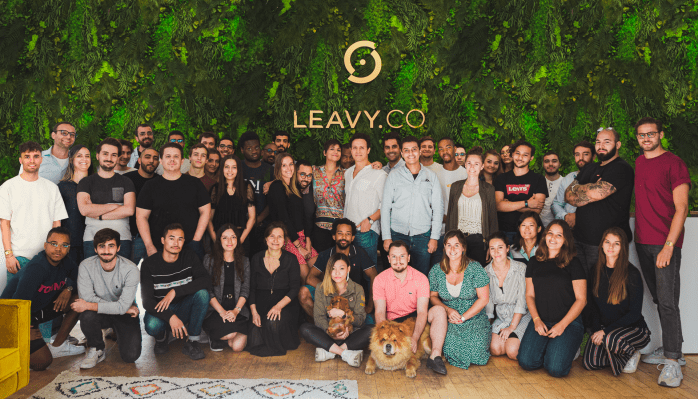Leavy.co, the Paris-born startup that offers a travel app for millennials to help them travel more without getting into further debt, has quietly raised $14 million in funding.
The investment — which is pegged as a seed round and actually closed in January! — is led by Dutch investor Prime Ventures, with participation from angel investor Dominique Vidal (who is also a partner at Index Ventures). Pieter Welten, a partner at Prime Ventures, has taken a seat on Leavy’s board.
Founded in 2017 by CEO Aziza Chaouachi, who at the time was studying law and traveling a lot, and later joined by co-founders Yassine Ben Romdhane (COO) and Mario Moinet (Chief Strategy Officer), the Leavy.co app is described as a “travel community and marketplace” that wants to help millennials travel (more) for less.
At the heart of its offering is a way for travellers (dubbed “Happy Leavers”) to rent out their room or apartment when they are away to help fund their trip. Other members (dubbed “Hosts on Demand”) then get paid to act as a local host and manage the Leavy booking. The idea, explained Chaouachi on a call yesterday evening, is to scale the community model that she first developed informally amongst friends and via her use of Airbnb when she was a student.
The killer feature — and undoubtedly where things get more interesting — is that Leavy gives members cash up front when they make their space available prior to traveling, regardless of whether or not a booking takes place. The exact price offered is dynamic and factors in various data, including how much notice is given.
Chaouachi declined to talk about the range of margin Leavy expects to generate, but, unlike most marketplaces, the startup is taking on most of the risk. If it fails to rent out a space while a member is away, it loses money. On the other hand, if its algorithm works well, it should be quite lucrative.
However, Chaouachi stressed that its algorithm and everything the startup does is being optimised for member satisfaction. If the pricing doesn’t work for all sides of the marketplace — renters, guests and hosts — Leavy’s network will stop growing and that’s the bottom line for a community-driven business that is incredibly reliant on network effects.
“We are the first pure-scale marketplace that takes a risk for its users,” she told me in an email prior to our call. “As network orchestrators, we generate profit with dynamic pricing. Our tech is obsessed with finding the optimal point of satisfaction for every user”.
Additionally, the Leavy.co app rewards members with travel credit — called Leavy Coins – when they invite friends to join and share travel tips and recommendations, or when posting photos to the app. They can then spend Leavy Coins on various travel-related products.
More broadly, the problem that Chaouachi is passionate about solving is that millennials are typically saddled with debt, often through buying an education or high accommodation costs, and that the desire and need to travel can often push them into further debt.
“As millennials, we go broke the second we decide to get an education or a credit card,” she says. “Buying a house like our parents is not an option, so we crave that weekend trip to Lisbon to lift our spirits before we go back to work on Monday. Once our outrageous rents have been paid out, it is the only air we can afford and — most of all — post about. The travel industry is the second-fastest-growing sector… and it is so at our expense, since we are its largest spenders”.
To that end, Leavy.co says its community network has grown to more than 65,000 millennials, of whom 60% are women. The young company already has 100 employees across 6 markets, with offices in Paris, Amsterdam, London, Madrid, Rome, and Lisbon. The plan is to open up in the U.S. by the end of this year.
“We are a brand new actor within the travel space, the next generation of OTA (online travel agency),” adds Chaouachi. “But unlike other OTAs such as traditional search engines like Booking.com, or short-term rental platforms like Airbnb, we don’t offer yet another item the Instagram-generation will never be able to buy: we actually boost their buying power instead”.
